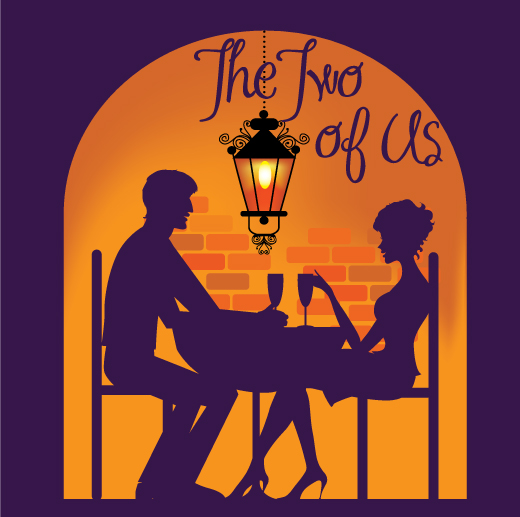Power and Passion

Christians have a rather unusual perspective on passion. ‘Passion’ Sunday marks the beginning of Holy week and the holiest day in the Church calendar celebrates the ‘passion’ of our Lord.
To the secular culture, passion is more about energetic living than about suffering and death. The dictionary offers the definition of passion as ‘a powerful or compelling emotion’; not something we’d usually associate with the humiliation of crucifixion.
Yet we would argue that the mystery we call ‘passion’ is very appropriately named. When we talk about the ‘passion of Christ on the cross’, it was a complete outpouring of love, even to the point of death. It is evidence of Christ’s urgency to be one with us, to sacrifice everything so that we can be with him for eternity.
Passion has become one of the things that we invite couples on our marriage seminars to reflect upon and to actively pray for in their marriage. Like Christ’s passion on the cross, passion leads us also to a self-sacrificing love; to self-donation.
Passion is at the very core of why we got married. It was our passion that brought us together and underpinned our decision to marry – we wanted to share all that we had with each other; dreams, fears, emotions, sorrows, laughter, our bodies. Our passion for each other led us to pledge everything we had, including our future, to our spouse on our wedding day.
As we write this, it is the eve of our thirtieth wedding anniversary. We remember with crystal clarity the urgency we felt to be with each other, the enthusiastic willingness we had to restructure our lives and reformulate our plans so that we could create a future together.
Passion is a desire for union and communion. To be one with each other in body and soul. In other words, passion is a desire for intimate knowledge of and connection with another in our whole personhood, not just physically, but emotionally and spiritually as well.
Culturally, there is a confusion between passion and lust. Lust is a selfish desire for another in order to fulfill my needs. It is a purely self-focussed thing. Whereas passion is other-centred and unselfish; it leads us to self-sacrifice and generosity.
In our newlywed years we attended a marriage retreat. At the beginning, the facilitators asked each person to introduce themselves and to describe what their spouse meant to them. Around half the participants said their spouse was their ‘best friend’. That was true for us as well, but it seemed so inadequate, so understated, so beige. We were lovers! We hesitated only briefly before jumping right in and saying it. (Yes, we have always been disturbers of the peace!)
Here’s the point, most of us would generally agree that although being good friends is a great start it’s not sufficient reason for getting married. A couple needs more, they need to have an element of passion, an urgency, a sexual spark for each other. They need to be, what we would call, ‘in love.’
Being ‘in love’ is foundational to marriage. It is a prerequisite, and the same principle should apply after the wedding as well as before. The principle should still apply 10, 20, 30 and 50 or more years later. So equally, being ‘best friends’ is nice but frankly not enough.
Passion is not just something for the young; it’s the essential ingredient for the married of any age. The special ‘chemistry’ that worked to attract us to each other on our first date is more central to our continuing relationship than we are often aware. If we are not passionately ‘in love’, marriage becomes too much like hard work and at risk of failing.
When we are ‘passion-light’, everything we do can feel like hard work. It’s easy to feel resentful and hard-done-by, that the other has a better deal.
On the other hand, when we are ‘passion-high’, everything about life feels easier. It’s easier to be generous towards each other. It’s easier to be generous to the kids. In fact, it’s easier to be generous to everyone in our lives.
Even mundane tasks like working at an unfulfilling job or doing menial household chores are transformed by the degree of passion we have towards the other. What one day can feel like a chore can be transformed by passion to a willing gesture of love as we seek out ways to demonstrate our devotion.
It’s not the action itself, but the ‘why’ of the action that is different. Passion transforms our motivation and the way we perceive our obligations and responsibilities.
When our passion is low, we tend to be measured in our love for each other. We put limits on it and unconsciously keep score. ‘He’s only doing so much, so I won’t do any more than this much’ or ‘It’s her turn to take out the garbage/get up to the baby/straighten the lounge room’ and so on. Our self-talk is self-centred and focused on protecting our own interests and ensuring that our spouse does his/her fair share.
Passion changes our whole disposition towards each other. Instead of keeping score or putting limits on our love, we think only of what we can do to delight our spouse. And it is no hardship for us, because we are motivated by desire rather than duty, by passion rather than obligation. Passion is what makes love easy and joy-filled.
Passion is really the same as being ‘in love’. Being ‘in love’ makes marriage so much easier and joy-filled. When we are ‘in love’, we want to make sacrifices for each other, we want to outdo each other in generosity.
Indeed, passion is clearly not just something for Holy Week. It is an every-day essential for a healthy marriage. It transforms our marriage from just a convenient living arrangement to a mission – a mission to love this man, or this woman, with everything we’ve got.
Francine & Byron Pirola are the co-authors of the SmartLoving series. www.smartloving.org



Thank you and happy 30th anniversary!